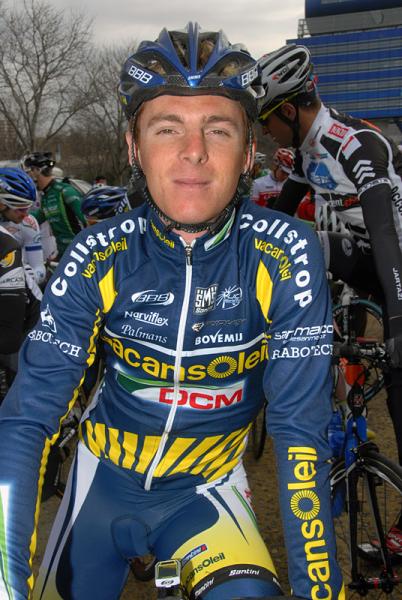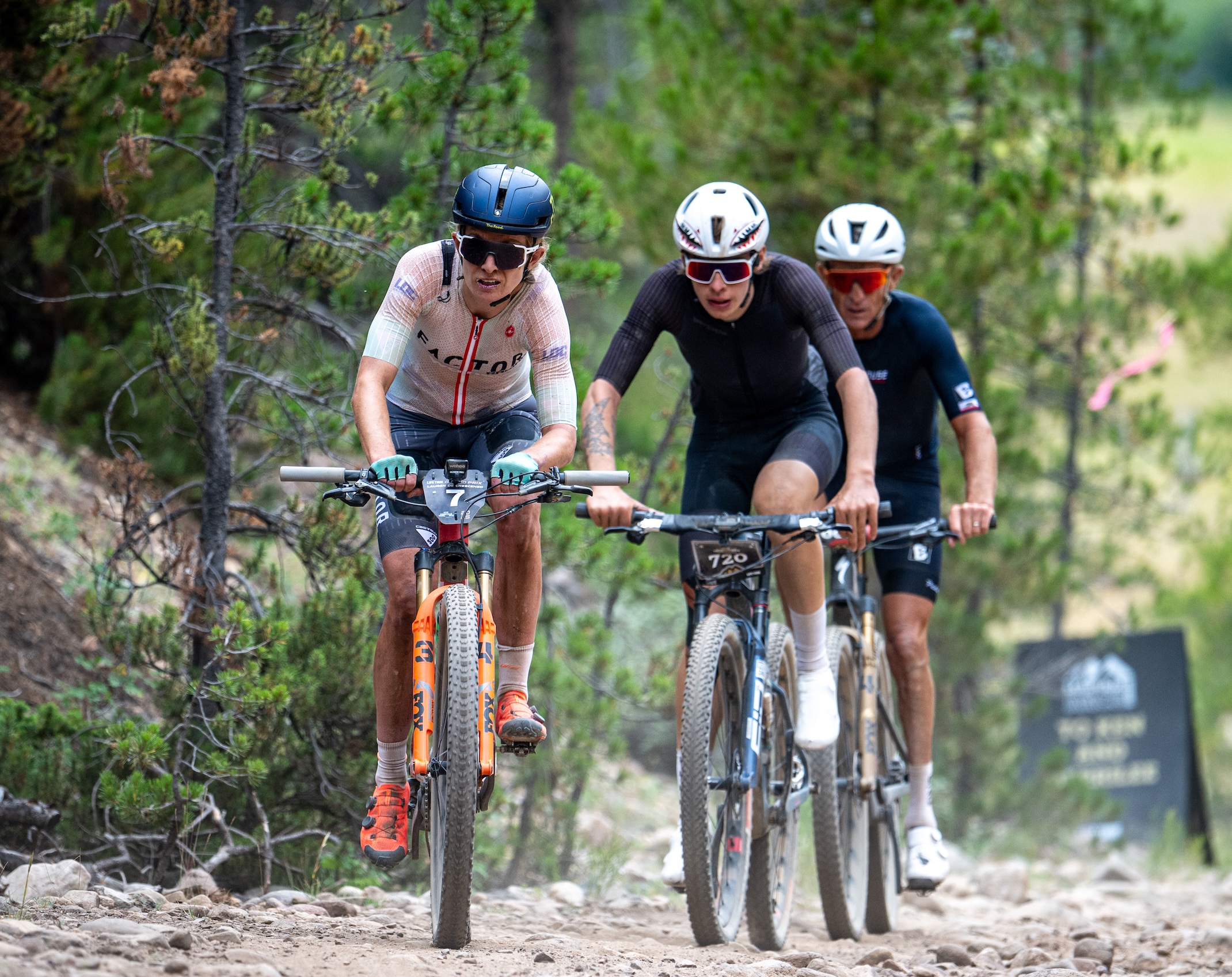Opinion: Riccò the perfect pariah
Why the Italian's woes are no cause for celebration
The latest race content, interviews, features, reviews and expert buying guides, direct to your inbox!
You are now subscribed
Your newsletter sign-up was successful

If anything good has come out of Riccardo Riccò's near-death experience on Sunday, it's that he should at least now know the difference between being laughed at and laughed with.
Riccardo Riccò: "The Cobra is dead"
Riccò hospitalized for possible kidney ailment
Italian police investigate Riccò for blood doping
Vacansoleil-DCM manager Luijckx reacts to Riccó news
Ricco to be questioned about blood doping investigation
Video: Cavendish, Aldag and Kelly react to Ricco doping news
Tests prove Riccò had blood transfusion, Dutch newspaper says
Vacansoleil-DCM suspends Riccò
For years that wasn't the case with Riccò. When I interviewed him just over a year ago in Serramazzoni, high in the Apennines of Emilia-Romagna, and put it to him that his dope-fuelled performances at the 2008 Tour de France were an insult to gravity and to the intelligence, Riccò laughed. When I chuckled too, he assumed that we were sharing a joke - but the joke was on him.
Just a few weeks ago, I spoke to him again for Cyclingnews. He vowed that he was a new man. In fact, he said, "The Cobra is dead". And once more we both giggled - me out of vanity because I knew the sound bite was a belter, and Riccò presumably at his own badinage. Or just maybe because he was thinking of the blood bag chilling nicely at the back of his fridge - and how he was about to take his new coach Aldo Sassi and the rest of us for a ride yet again.
No, Riccardo Riccò never was, never will be the sharpest tool in the box. He didn't read books and he didn't finish school. Today, were he not in hospital undergoing treatment for kidney failure caused by a botched blood transfusion, he might be clocking in for work in a factory or queuing for his dole cheque. Who knows, he even might be happy, or at least content. And the pro peloton would be a healthier place for never having known Riccò, his arrogance or his cheating. At least that's perhaps what its members might like to think.
Personally, as details of this horrifying tale emerged on Tuesday night, I couldn't help but wince at some of the invective being sprayed Riccò's way. Dim-witted and immodest, he was an easy target for his peers' outrage the first time around, and the attacks on the Cobra in the past few hours have been even more venomous. If the UCI added Schadenfreude to the banned list, there'd be no one left to race in Qatar or at the Tour of the Med.
I don't doubt that some of the criticism is motivated by a genuine frustration. At the end of a bleak winter for professional cycling, Riccò has issued yet another crushing blow to the sport's credibility. No individual, however talented, however stupid, however morally bankrupt, should have the right to ruin a Tour de France like Riccò did in 2008, or to abuse that sport's indulgence towards snakes in the grass as he has now, not a year after being handed a second chance. On that score, his colleagues are entitled to vent their disgust - especially the many who are clean.
At the same time, though, part of me can't help wondering whether some of them quite liked having Riccò around. He was, after all, the perfect pariah. Was it not - you tell me - easy to demonize a rider with a haematocrit higher than his IQ and blessed with even less in the way of self-awareness? Of course a rider like that would cheat. Of course he wouldn't have cleaned up his act. Or - again, answers on postcards - when some of these guys condemn him, are they really just incensed that he committed the cardinal sin of getting caught? Riccò's compatriot Filippo Simeoni said that was precisely the warped mentality which made some riders so angry with Riccò after his positive test for CERA in 2008.
The latest race content, interviews, features, reviews and expert buying guides, direct to your inbox!
What prompts these conclusions? Well, you don't have to look hard for worrying signs in cycling at the moment. Just open your eyes and ears. Whether it's Oscar Pereiro insisting he "never had a problem with doping", or Astana boss Giuseppe Martinelli saying he thinks Alberto Contador is innocent because he was "very careful about that kind of thing" (what exactly? Not taking clenbuterol?), or several others you care to mention referring to riders having "made mistakes" as opposed to flat out doped or cheated, familiar alarm bells are beginning to go tring-a-ling.
If that really does give us food for thought, and if Riccò has left any legacy to professional cycling besides his modern-day tragedy, perhaps it's worth the UCI now considering what it means to give riders "a second chance". History will record that that Italian tested positive only once in his career - at the 2008 Tour - but by then you could argue that he was already on strike number three. As an amateur, he'd failed a series of blood tests before obtaining UCI certification for a naturally high haematocrit. A couple of years later, in 2006, he'd been investigated by police near Naples for his alleged involvement in a drug-trafficking ring. And, after his positive test for CERA in 2008, his fiancée and her brother had both been entangled in separate doping controversies.
Never mind "Cobra", two or three more lives and we'd have been calling him "The Cat".
This all ought to invite reflection, especially bearing in mind that Riccò's compatriot Danilo Di Luca is currently downing vodkas in Katusha's last chance saloon. Di Luca, like Riccò, was repeatedly implicated in doping scandals before he was finally fingered in 2009. Admittedly, the UCI can't always enforce sanctions on the basis of dishonourable mentions in police dossiers, but they can encourage their affiliates to make wiser choices. In other words, why allow teams in their elite category, the World Tour, to hand former cheats new rope with which to hang the sport?
As for Riccardo Riccò the former cyclist, we can only echo Italian Cycling Federation president Renato di Rocco in hoping that he can carve out a life after and well away from cycling. Christophe Bassons, the former Festina rider, eloquently explained last week that the temptation to dope always arises from a void or insecurity, and it was always clear with Riccò that attention and success were more addictive drugs than anything stored in his freezer. Perhaps more importantly, they were an alternative - his only one - to mediocrity.
Even that, though, he must now agree, was surely preferable to a hospital bed or an early grave.
